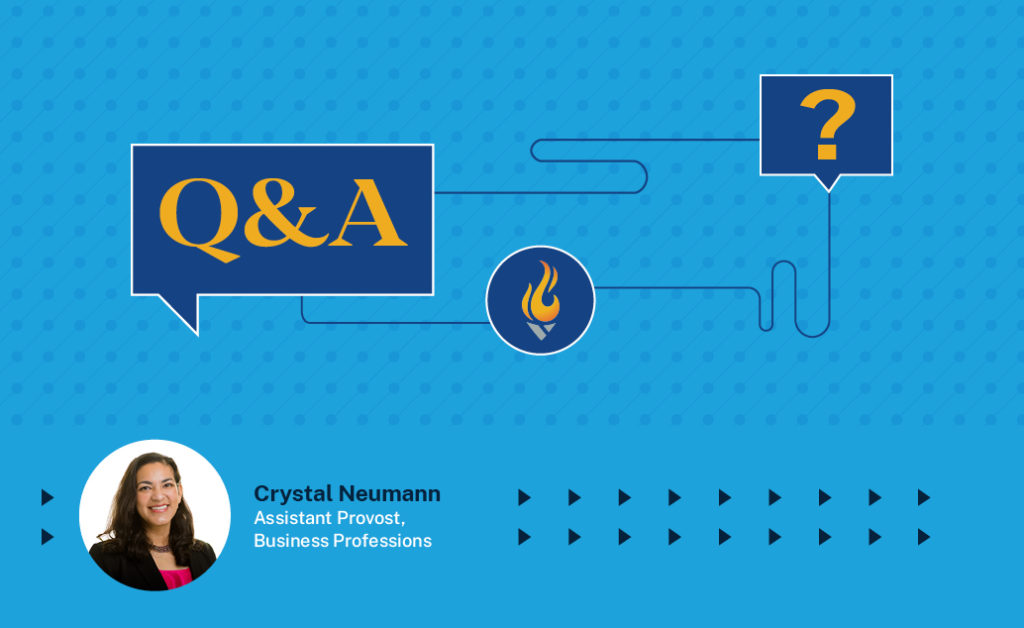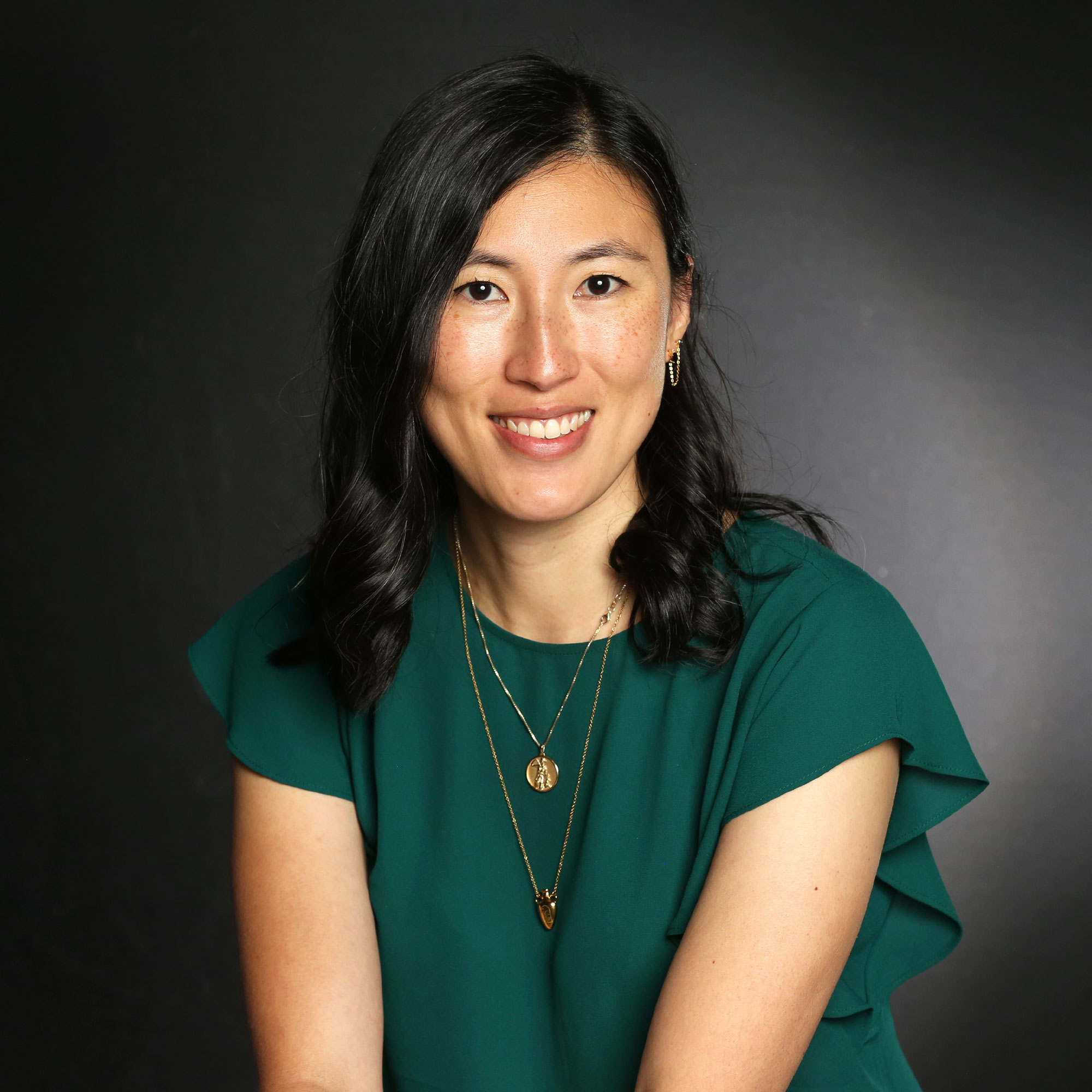
American College of Education has launched a fully online Master of Science in Sustainable Management, a master’s degree for those who want to learn “green skills,” a highly sought after expertise in today’s business landscape. As businesses and organizations work to become more sustainable, the need for professionals who can drive real-world solutions while successfully leading a diverse team has grown tremendously.
We spoke with Dr. Crystal Neumann, assistant provost of business professions, to learn more about ACE’s new program and the increasing opportunities available to sustainability professionals.
ACE: Give us a quick overview of the M.S. in Sustainable Management and why ACE developed this program.
Dr. Crystal Neumann (CN): ACE developed this program because we saw an increasing need for professionals who require the skills to become effective change agents in managing diverse and inclusive teams working within diverse green economic sectors. There is also an increasing need for business professionals to be equipped with the skills and knowledge to develop solution-based projects, while working in specific green economic industries such as agriculture, energy and technology.
This program was developed for individuals who wish to impact the greater good through the application of sustainable management practices and examine the green sector’s impact on modern businesses. The program objectives, courses and assignments are purposefully broad to address the fundamentals of decision-making and provide the opportunity to serve an increasingly complex and ever-changing global business environment.
ACE: What kind of career opportunities are available to someone with an M.S. in Sustainable Management?
CN: By understanding businesses and organizations that are focused on sustainability and the economy, students will better position themselves for optimum business career outcomes as leaders who are ready to integrate sustainability initiatives into new and existing enterprises. This program is for anyone who aspires to work in sustainable finance, impact investing, for-profit businesses for good, nonprofit organizations and public management.
ACE: What are some industry trends that are most interesting, compelling or intriguing to you?
CN: Though business education has addressed sustainability for many years, the demand has grown rapidly since 2015 when the United Nations recognized the importance of the higher education sector alongside governments. This is what brought the United Nations in achieving 17 Sustainable Development Goals as part of the 2030 sustainable development agenda.
Additionally, companies seeking sustainability professionals are on the rise. According to GreenBiz’s State of the Profession 2020 Report, in 2012, only 45% percent of sustainability hires came from outside a large company. That number increased to 67% in 2021. With more businesses and organizations focused on sustainability, there are increases in sustainability related jobs. LinkedIn noted an 8% annual growth in job postings related to sustainability over the past five years, but only a 6% increase in sustainability professionals over that same time period. In June 2021, Indeed listed 62,878 jobs in sustainability.
The field continues to emerge and expand. Businesses and organizations want to show they are working to meet the Sustainable Development Goals and are undertaking efforts to make this transparent. These businesses need employees who have the skills to address sustainability issues. And sustainability is good for business. In 2017, 35 CEOs and civil society leaders belonging to the Business & Sustainable Development Commission expressed that sustainable business models could open economic opportunities worth up to $12 trillion and increase employment by up to 380 million jobs by 2030. Our M.S. in Sustainable Management is designed to meet these market demands.
ACE: What makes ACE stand out as a higher education institution, specifically within the study of business?
CN: Affordability and accessibility are not the only things that make ACE different. Our faculty are practitioners in the field, so they bring that experience into the classrooms. Additionally, ACE became a Benefit Corporation (B Corporation) in 2016 to further live out our mission and vision. B Corps are businesses that meet the highest standards of verified social and environmental performance, public transparency, and legal accountability to balance profit and purpose. We keep our B Corp status in mind when developing our business programs.
With our M.S. in Sustainable Management specifically, all courses are aligned to the United Nations’ 17 Sustainable Development Goals. It also focuses on using business as a force for good with an emphasis on the standards of maintaining a Certified Benefit Corporation. Through the ACE Library, students have access to relevant business journals and everything they need without having to purchase textbooks. We also have simulations integrated into our business courses to give our students a more stimulating learning experience. Add to that the bounty of resources available through student services, the writing center and more, we ensure our students are supported and have what they need to succeed.
ACE: How does the M.S. in Sustainable Management compare to the MBA in Social Impact and the M.S. in Organizational Leadership, two other business degrees we offer at ACE?
CN: We launched a focus of study in Sustainability for our MBA in Social Impact in August 2021. The M.S. in Sustainable Management is an extension of this work. What makes this program different is that graduates will be prepared to contribute to their professional communities as business leaders who focuses on sustainability in an ever-changing global business environment. Yet, like our other business programs, our students will address real-world problems by learning to be change agents and to lead diverse and inclusive teams. This business degree is another way for us to align to ACE’s mission of preparing graduates to serve, lead and achieve.
Explore American College of Education’s fully online business programs.

